Introduction
Selecting the right property manager is a critical decision for any landlord or real estate investor. A skilled property manager not only handles tenant relations, maintenance, and rent collection but also protects your investment, maximizes cash flow, and ensures compliance with local regulations. Conversely, a poor fit can lead to costly mistakes, unhappy tenants, and legal headaches. In this guide, we’ll walk through the key considerations—defining your needs, researching candidates, evaluating experience and credentials, comparing fees, and checking references—so you can confidently choose a property manager who aligns with your goals.
1. Define Your Property Management Needs
1.1 Property Type and Size
- Residential vs. Commercial
- Residential managers focus on single-family homes, apartments, and condos—often requiring marketing, tenant screening, and routine maintenance.
- Commercial managers handle office buildings, retail spaces, and industrial properties; they need expertise in lease negotiations, business operating hours, and CAM (common area maintenance) charges.
- Portfolio Size
- A “mom-and-pop” manager might be ideal for one or two rentals.
- If you own multiple units or a large multifamily complex, look for a firm with scalable resources—dedicated teams for maintenance, bookkeeping, and leasing.

1.2 Desired Service Scope
- Full-Service Management
- Tenant acquisition, screening, lease drafting, rent collection, maintenance coordination, eviction handling, accounting/reporting, and legal compliance.
- À la Carte Services
- Some managers offer only leasing or maintenance on a per-job fee.
- Ideal if you want to handle rent collection and accounting yourself but need help finding tenants or handling repairs.
1.3 Geographic Location
- Local Expertise
- Choose a manager active in your property’s neighborhood, as they’ll know local rental rates, ordinances, and reliable vendors.
- Avoid “fly-in” companies that charge extra travel fees and lack immediate responsiveness.
2. Research Potential Property Managers
2.1 Compile a Shortlist
- Referrals
- Ask fellow landlords, real estate agents, or investor groups for recommendations. Firsthand experiences can highlight strengths and red flags.
- Online Directories and Reviews
- Check local property management associations, Yelp, Google My Business, and the Better Business Bureau (BBB) for ratings, reviews, and complaints.
2.2 Verify Licensing and Credentials
- State Requirements
- Many states require property managers to hold a real estate broker’s license or a property management certification.
- Check your state’s real estate commission website to confirm each candidate’s license status and disciplinary history.
- Professional Affiliations
- Look for membership in organizations like the National Association of Residential Property Managers (NARPM) or Institute of Real Estate Management (IREM).
- These affiliations often signal adherence to ethical standards and ongoing education.
3. Evaluate Experience and Track Record
3.1 Years in Business and Portfolio
- Longevity
- A manager with 5+ years in your market has likely navigated different market cycles and built a stable vendor network.
- Property Mix
- Ensure their existing portfolio reflects your property type—if you own single-family homes, a manager specializing in large apartment complexes may not give you personalized attention.
3.2 Tenant Retention and Vacancy Rates
- Average Vacancy Rate
- Ask for their portfolio’s historical vacancy rate. A rate below the local average indicates effective marketing and tenant retention strategies.
- Tenant Turnover
- High turnover often signals poor maintenance, communication breakdowns, or unreasonable rent increases. Request metrics on average lease duration.
3.3 Financial Performance
- Rent Collection Rates
- Verify their on-time rent collection percentage (ideally above 95%).
- Net Operating Income (NOI) Growth
- Ask how they’ve helped landlords increase NOI through optimized rent pricing, cost-effective maintenance, and minimizing vacancies.

4. Interview and Compare Services
4.1 Sample Interview Questions
- Tenant Screening Process
- “What criteria do you use when evaluating applicants? How do you handle background and credit checks?”
- Maintenance and Repairs
- “Do you employ in-house maintenance staff, or do you rely on third-party vendors? How do you handle emergency repairs?”
- Communication Protocols
- “How often will I receive reports? What’s your preferred method for urgent notifications (email, text, phone)?”
- Legal and Compliance
- “How do you stay current with local landlord-tenant laws? Have you ever navigated an eviction in our jurisdiction?”
- Fee Structure
- “Can you detail your management fees, leasing fees, and any other charges (e.g., late-fee administration, eviction coordination)?”
4.2 Compare Fee Structures
- Management Fees
- Typically 8–12% of collected rent for residential properties; commercial properties may range from 4–10%.
- Leasing Fees
- Often 50–100% of one month’s rent for securing a new tenant. Some charge a flat fee instead.
- Maintenance Markups
- Some firms add a percentage (10–20%) on vendor invoices. Opt for transparent, cost-plus pricing if possible.
- Eviction and Legal Fees
- Clarify whether they pass through court costs or add administrative charges.
4.3 Service Level Agreements (SLAs)
- Response Times
- Ask for guaranteed turnaround times—e.g., “24-hour response for non-emergency maintenance requests” and “1-hour response for emergencies.”
- Reporting Cadence
- Weekly or monthly financial statements? Online portal access? Ensure their reporting frequency matches your needs.
5. Check References and Reputation
5.1 Speak with Current and Former Clients
- Ask for Case Studies
- Request examples of how they resolved tenant disputes, handled large repairs, or improved cash flow.
- Contact References
- Email or call two to three landlords whose properties match yours in type and size. Inquire about satisfaction with communication, transparency, and overall performance.
5.2 Review Online Feedback
- Google/Yelp Reviews
- Look for recurring praise or complaints (e.g., “doesn’t return calls promptly,” “fair and transparent billing,” “tenants love their 24/7 portal”).
- Better Business Bureau (BBB)
- Check for unresolved complaints or any patterns of legal issues.
6. Assess Technology and Reporting Tools
6.1 Property Management Software
- Online Portal Access
- Confirm they offer a landlord dashboard where you can view rent collection, maintenance tickets, and financial reports in real time.
- Tenant Portal
- A user-friendly tenant portal speeds up rent payments and maintenance requests—reducing the manager’s workload and enhancing tenant satisfaction.

6.2 Automation and Transparency
- Automated Rent Collection
- Ensure they support rent payments via ACH or credit/debit cards, with automated reminders and late-fee processing.
- Maintenance Tracking
- A centralized system where tenants can submit requests, managers can assign work orders, and you can track costs.
- Financial Reporting
- Look for customizable reports (cash flow statements, ledgers, year-end tax summaries) that integrate with your accounting software.
7. Review the Management Agreement Carefully
7.1 Term and Termination Clauses
- Contract Length
- Typical agreements run 6–12 months, often renewing automatically.
- Termination Notice
- Clarify required notice period (30–60 days) and any associated penalties or fees for early termination.
7.2 Fee and Expense Clauses
- Fee Transparency
- Ensure all fees—management, leasing, eviction, maintenance markups—are spelled out. Watch for vague language like “reasonable fees.”
- Expense Authorization
- Determine if the manager can approve emergency repairs up to a certain dollar amount without prior landlord approval (e.g., up to $500). Larger expenses should require your sign-off.
7.3 Liability and Insurance
- Insurance Requirements
- Confirm the property manager carries general liability and errors & omissions (E&O) insurance.
- Indemnification
- Review clauses detailing how both parties handle liabilities—especially around tenant injuries or code violations resulting from mismanagement.
8. Final Decision and Handover
8.1 Compare Finalists
- Scorecard Approach
- Create a simple spreadsheet rating each candidate on criteria such as experience, fees, technology, client references, and service responsiveness.
- Gut Check
- Consider intangible factors—rapport during the interview, perceived proactiveness, and whether you trust them to represent your interests.
8.2 Onboarding and Transition
- Smooth Handover
- Provide existing lease agreements, tenant contacts, vendor contacts, and maintenance history to the new manager.
- Communication Plan
- Announce the management change to tenants with clear instructions on where to pay rent, how to request maintenance, and whom to contact for emergencies.
8.3 Establish Regular Check-Ins
- Monthly Review Meetings
- Schedule brief calls or video conferences to review financial reports, discuss any issues, and adjust strategies as needed.
- Key Performance Indicators (KPIs)
- Track occupancy rate, rent collection rate, maintenance turnaround time, and tenant satisfaction to evaluate ongoing performance.
Conclusion
Choosing the right property manager requires a balance of due diligence, clear communication, and aligned expectations. Begin by defining your specific needs—property type, service scope, and location—then research and shortlist candidates with the appropriate licenses, experience, and track record. Interview each contender, compare their fees and technology platforms, and check references to verify their reputation. Carefully review management agreements for transparency around fees, liabilities, and termination clauses. Finally, choose the manager who best combines industry expertise with trustworthy communication and technological tools. With the right partnership, you’ll protect your investment, keep tenants satisfied, and optimize your rental property’s performance for years to come.



